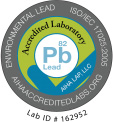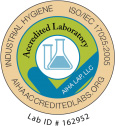
Shorter days and less daylight are our first signal that winter is upon us. Cooler temperatures drive us indoors for longer periods, but what if the quality of the air inside our homes and buildings is negatively impacting our health and well-being? Understanding how a closed environment affects indoor air quality (IAQ) is crucial, especially for those focused on maintaining a healthy living space.
What Is Indoor Air Quality?
IAQ is a measure of the air inside buildings as it relates to the health and well-being of occupants. IAQ is influenced by various factors, including the concentration of pollutants, humidity levels, ventilation and temperature. Common indoor air pollutants include dust, mold, pet dander, chemicals from cleaning products, and volatile organic compounds (VOCs) emitted by building materials and furnishings. Tangible impacts of poor IAQ can result in health issues, ranging from mild symptoms like headaches and fatigue to more severe conditions such as respiratory problems and allergies. Maintaining good IAQ is especially important during winter, as homes are often sealed tightly, reducing ventilation and increasing the concentration of indoor pollutants.
How Winter Affects Indoor Air Quality
Increased use of heating systems, sealed homes and other seasonal behaviors can cause pollutants to accumulate indoors. Furnaces, fireplaces and space heaters can release carbon monoxide, nitrogen dioxide and particulate matter into the air. In poorly ventilated spaces, these pollutants can accumulate, leading to a decline in indoor air quality. Reduced ventilation, by virtue of closed windows and doors, reduce airflow, allowing pollutants to build up inside.
Indoor environments with restricted airflow and high humidity levels can encourage mold growth. Mold spores can trigger allergies and asthma attacks, which underscores the importance of monitoring and controlling indoor humidity. Finally, using household products like cleaning agents, air fresheners and de-icing chemicals can release VOCs and other harmful chemicals into the air. With reduced ventilation, these pollutants can linger indoors, leading to a decline in IAQ.
How to Improve Indoor Air Quality During Winter
- Enhance Ventilation:
Even though it may be cold outside, it’s important to ensure your home has adequate ventilation. Use exhaust fans in the kitchen and bathrooms to remove excess moisture and pollutants. Opening windows for a few minutes each day can also bring in and circulate fresh air. - Use Air Purifiers:
Air purifiers with HEPA filters can help remove particulate matter and allergens from the indoor air. They are particularly effective in rooms where ventilation is limited. Placing them in bedrooms and living areas can significantly improve IAQ during the winter. - Monitor and Control Humidity:
Keep indoor humidity levels between 30% and 50% to prevent mold growth. Using a dehumidifier can help control moisture levels in areas prone to dampness, such as basements and bathrooms. Make a habit of using exhaust fans in kitchens and bathrooms to prevent excess humidity. - Maintain Heating Systems:
Regular maintenance of heating systems is essential for both efficiency and IAQ. Make sure that furnaces, fireplaces, and space heaters are inspected and cleaned regularly to prevent the buildup of harmful pollutants. Consider using a HEPA filter in your HVAC system to capture airborne particles. - Choose Non-Toxic Products
Opt for cleaning products and household items labeled as low-VOC or non-toxic to reduce the release of harmful chemicals into the air. Ventilate the area when using any product that emits odors and consider natural alternatives where possible.
Winter presents challenges for maintaining good IAQ, but with the right steps, you can minimize the season’s impact on your health. Addressing the factors that contribute to poor IAQ during winter and implementing proactive measures will help create a healthier, more comfortable living space for you and your family.
Nationwide Accredited Laboratory Testing
If you are concerned about your IAQ, contact a reputable environmental contractor who sends samples to accredited laboratories like SanAir Technologies Laboratory for testing. Contact us at 888-895-1177 to learn what to look for when hiring an IAQ specialist.












